Hahah give me a tip to make my kids eat veggies and I will give you a dollar for every bite!!
12 Phrases Parents Are Better Off Not Saying to Their Kids
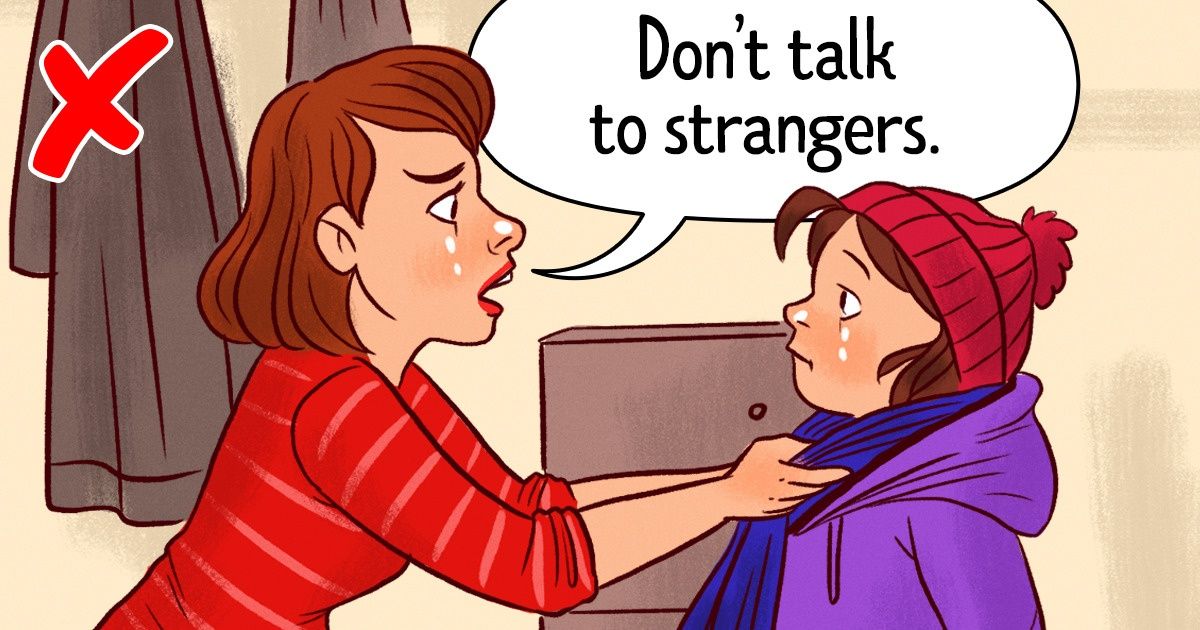
There is no doubt that loving and conscious parents wish their children all the best. That’s why they keep controlling every step the child takes, and teaching and motivating them. However, some phrases that adults say that might sound harmless at first glance, can harm their kids’ (immature) psyches. These are words that we usually say automatically, without even thinking — all because most of us have heard them from our parents.
Based on the opinion of psychologists, we at Bright Side figured out which phrases can affect the principles of our children’s lives in the future.
“You can become anyone you want.”
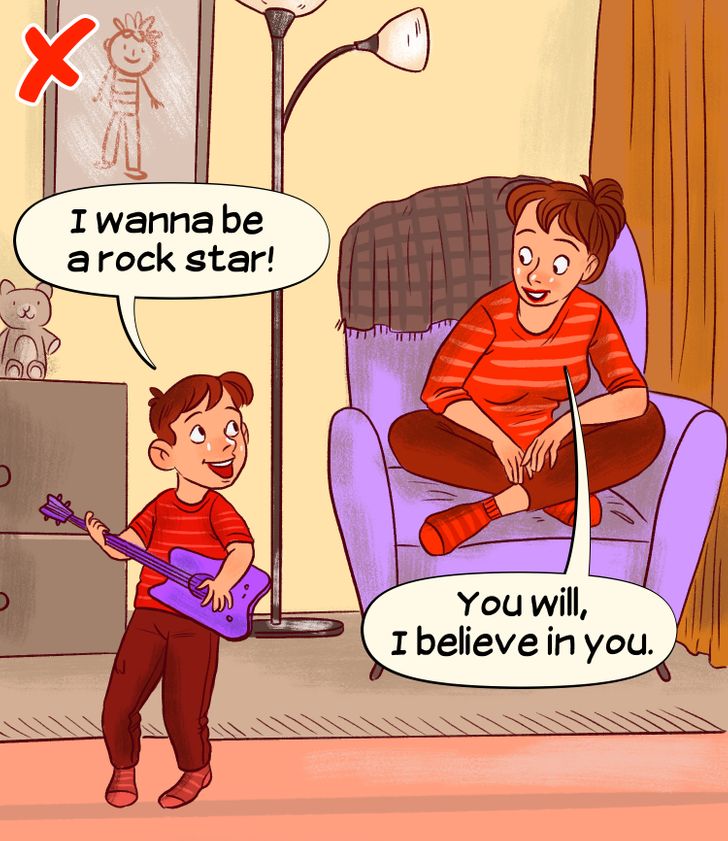
Supporting kids in their hobbies and goals for the future is good, however, kids’ excessive ambitions can also have a negative effect, as research shows. It’s important to convey to your kid that they need to have a plan B, in case they won’t be able to make their dreams about their future career come true. Not every kid can become a talented surgeon, astronaut, or football star, even if they continue working hard to reach that goal. And it’s absolutely normal.
The task of parents is to teach the kid to be realistic and set achievable goals, as well as warn them that there might be disappointments in life.
“Do it, even if you can’t.”
When it comes to physical loads, these instructions might harm the kid. This phrase most often comes from parents who try to make their unrealized dreams come true with the help of their kids (like becoming a ballerina or a star athlete). Workouts that are too intense can end up with a trauma that can cross out your kid’s future. Teach your child to listen to their body and react to pain and discomfort on time.
“You are just like your father/mother.”
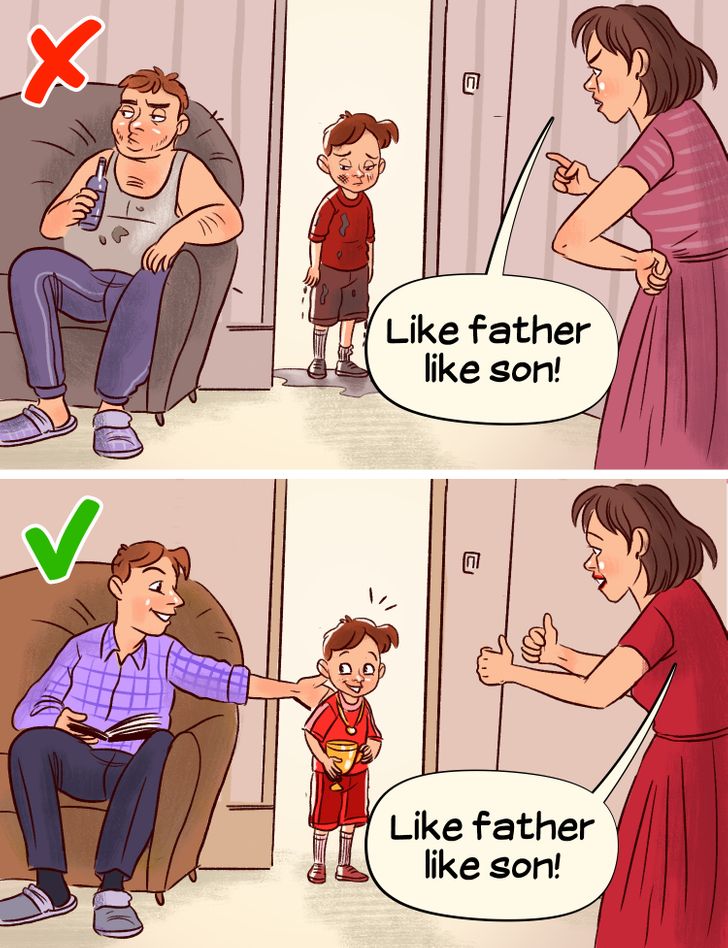
There is nothing bad about comparing kids with one of their relatives, in a positive sense. But, unfortunately, these phrases usually have a negative connotation, and it’s not just the kid’s but also the parent’s behavior that gets criticized. It confuses kids, makes them take either their father’s or their mother’s side, while they end up trying to please one of them.
“You are the best. No one compares to you.”
Even if you say these phrases with love, still, idealizing a kid might have negative consequences for their self-esteem. It leads to a situation where kids don’t dare try themselves in something new, being afraid that they will fail and won’t meet their parents’ expectations.
“Eat broccoli/spinach/cauliflower, it’s very healthy.”
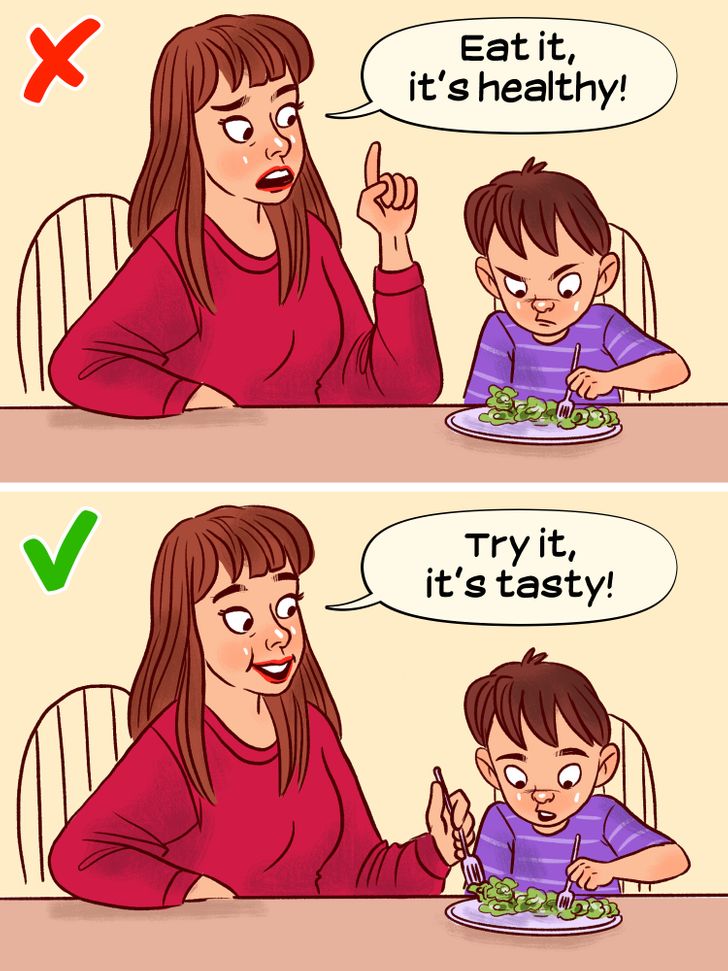
According to researchers from the University of Chicago, for kids, the word “healthy” becomes the synonym to the word “not tasty” over time. Because of this, they might refuse to eat any healthy food without even trying it. If you want your child to eat, for example, cauliflower, it is better to say that it is delicious and crispy.
“Don’t hit your brother/sister.”
It’s absolutely normal to get overwhelmed with negative emotions toward a certain person. Both children and adults sometimes find it hard to control their feelings, but we can find a way to control them. And that’s exactly what we need to teach our kids — accept emotions and control our reaction to them. The phrases “don’t beat your brother” or “don’t offend your sister” are often not enough if you don’t explain the reason. No child will ever answer, “Ok, I won’t!”
Try to convey to your kids that they shouldn’t suppress their emotions, however, it is wrong to direct them into causing physical harm to loved ones. Encourage your child to throw their negative emotions onto a pillow or a toy, to draw a picture that reflects their feelings, or to simply to describe their feelings using words.
“Don’t get upset about nonsense.”
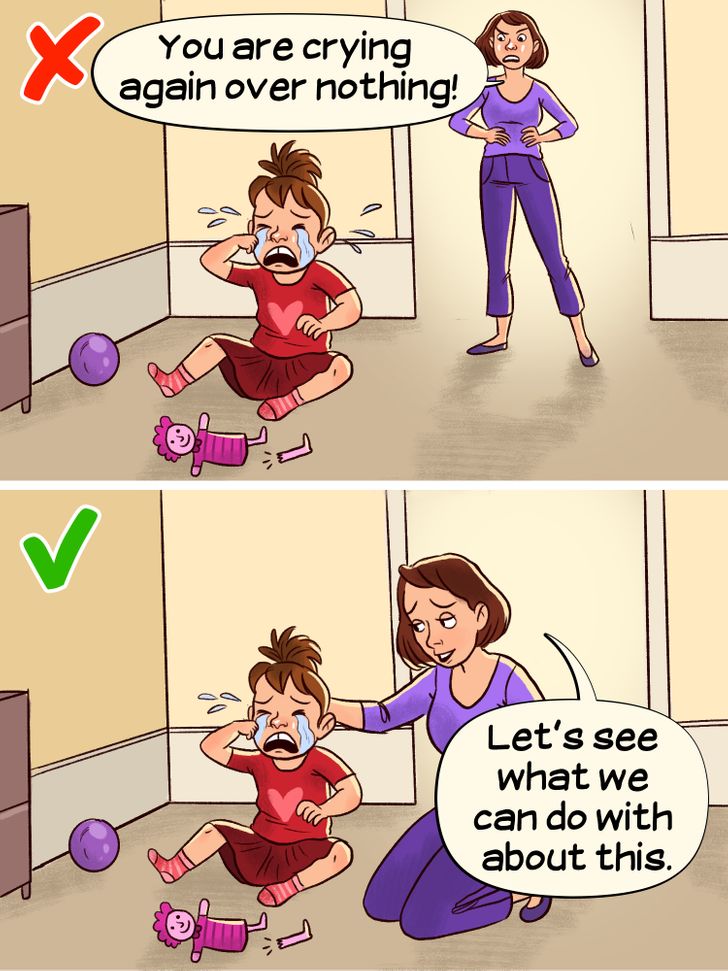
Don’t underestimate your kid’s problems. Perhaps it’s not nonsense for them, even if it’s only a lost toy. When demonstrating disregard for your kids, you might end up losing their trust. It may result in them not coming to you for advice or help if the issue is really serious.
“Let me help you.”
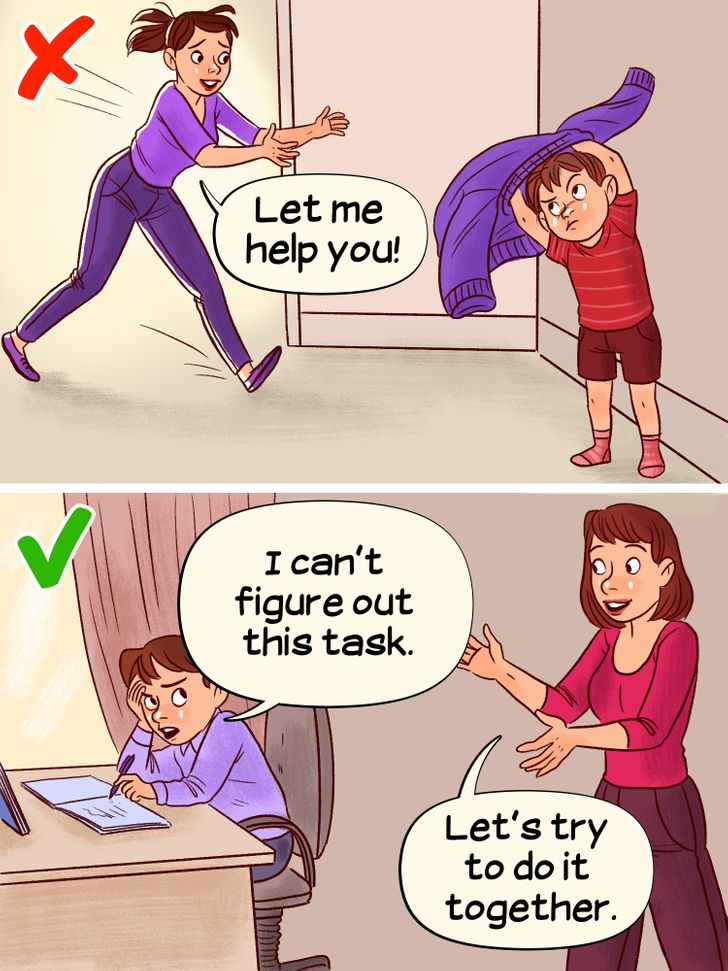
A child’s ability to determine when they really need outside help and when they can cope on their own is one of the most important skills that we must acquire at an early age. Many parents are ahead of the needs of their children, for example, when helping them with homework, which a kid could have done themselves. Later in adult life, these people find it difficult to start something new, because they are afraid of failure.
“Don’t touch it, you’ll break it!”
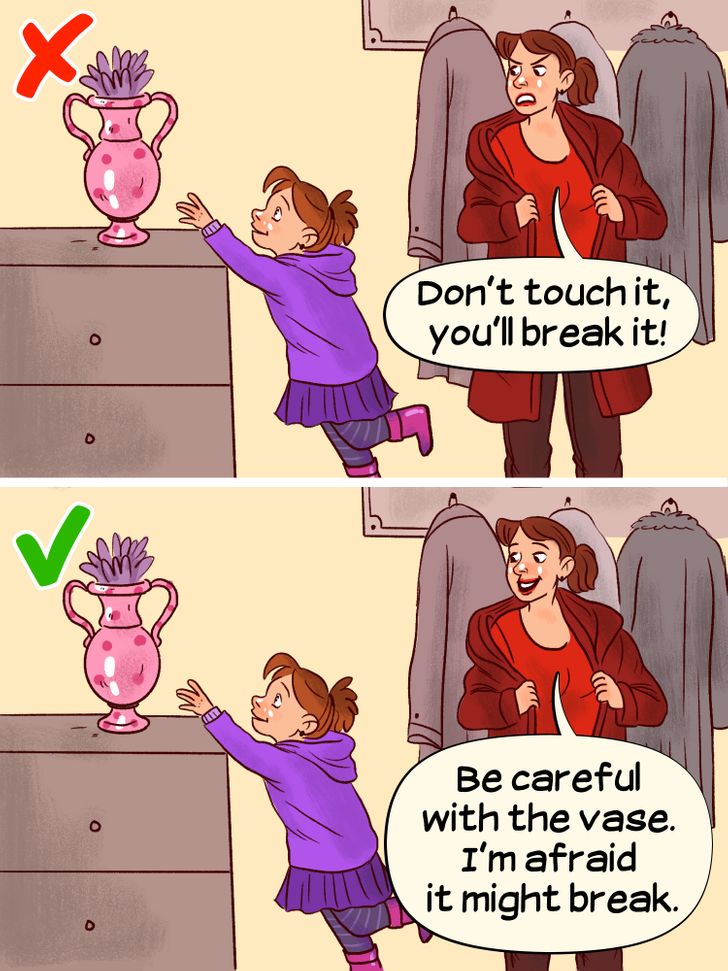
If you keep repeating this kind of phrase, it will result in making your kid feel constrained and self-conscious. After hearing this phrase, the child is likely to drop and break the thing because you have set them up for this outcome. In adult life, this person might be afraid to build a career — they will be sure that nothing will work out, and therefore, that it’s not worth starting anything. If you are afraid that your kid might break or spoil some valuable thing, it’s better to say, “Be careful with it. I am afraid it might break.”
“You are so smart!”
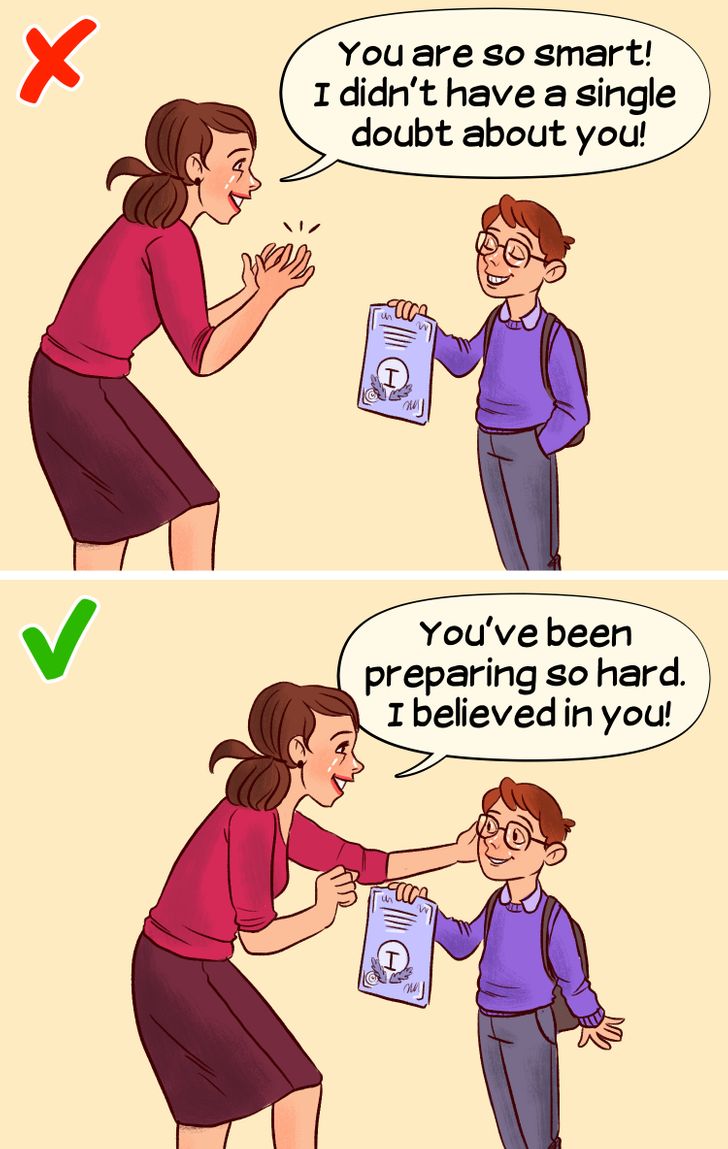
At first glance, this phrase might look like a good way to praise a kid. However, it can make them think that it’s not necessary to put a lot of effort into attaining success, because they have an natural talent or smartness. It is better to encourage the work and efforts of children, rather than their features. For example, “You have been working so hard on this project.” or “I believed you’d do it because you have spent so much time and effort on this task.”
“Mom is not crying. Everything is fine.”
Trying to protect their child from worries, some parents put on a happy mask and pretend that everything is fine, when they themselves are overwhelmed with emotions. However, children feel false emotions very subtly and it scares them. If you suppress negative emotions and imitate positive ones, it will worsen not only your health, but also your relationship with your child. You don’t have to tell your kid about everything that happened, but it’s important to show children by example that they shouldn’t be ashamed of their own feelings.
“Don’t talk to strangers.”
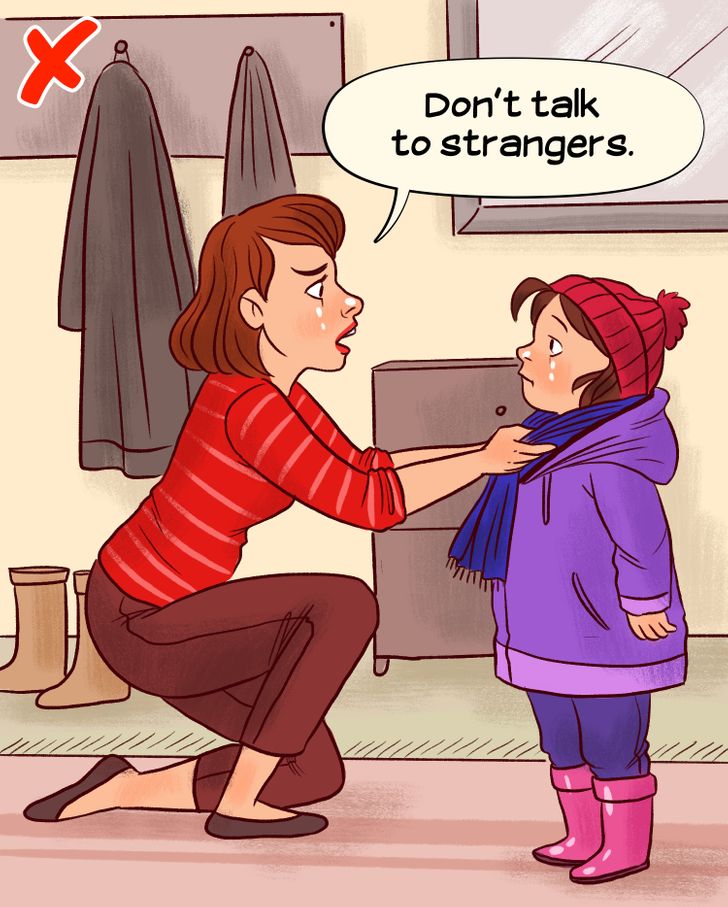
This concept is too complicated to understand when it comes to small children. Moreover, they might start to stay away from all strangers, including those who are trying to help them (like firefighters or policemen, for example). Instead of prohibiting your kid from talking to any stranger, it’s better to explain to them how to behave in certain situations. For example, if some suspicious man offers them candy or calls the kid to over to his car or his home.
Does your kid often hear these phrases from you? Which other words do you think might be harmful for children?
Comments
I can't believe parents in 2020 still say to their kids things like "you are like your father". It's so sad. We should really start reading more!
Related Reads
I Refused to Let My Boss Steal Credit for 72 Hours of My Hard Work
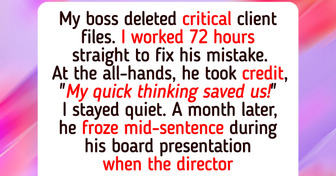
My MIL Stole My Daughter’s $50K College Fund—The Consequences Were Immediate
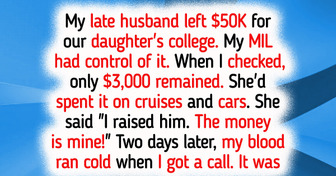
12 Real-Life Betrayals That Sound Like Movie Plots
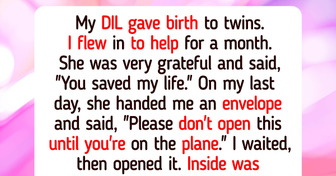
I Refused to Let Anyone Steal What My Dad Left Me, and My Mom Made It Worse
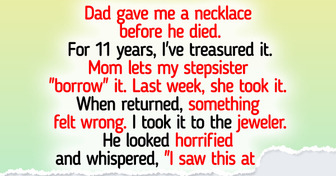
12 Moments That Show Romance Is Really About Small Acts of Kindness

I Refused to Be Treated Like a Maid in My Own Home—So I Changed the Rules
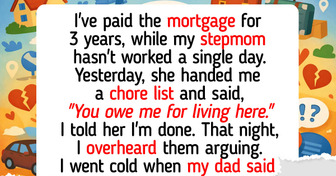
My Cousin Uninvited Me to Save Money—My Petty Revenge Was Absolutely Worth It

14 Stories That Prove Relationships Can Take the Wildest Turns
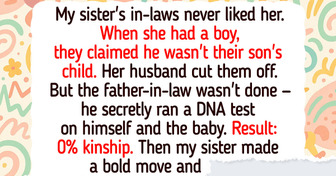
My Manager Tried to Destroy My Career but a Work Argument Showed Them the Truth
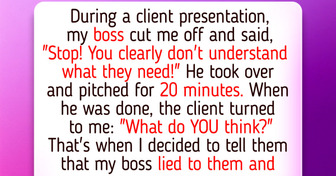
12 Life Moments Where Quiet Kindness Played the Main Role

I Cut Off My Parents After They Demanded My Inheritance—and I Don’t Regret It
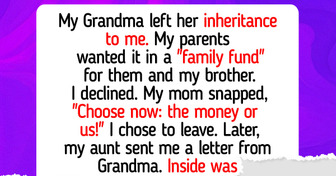
My In-Laws Forced Me to Leave My Vacation Early—They Crossed Every Line
